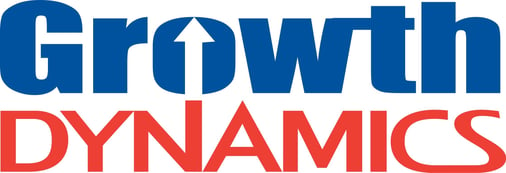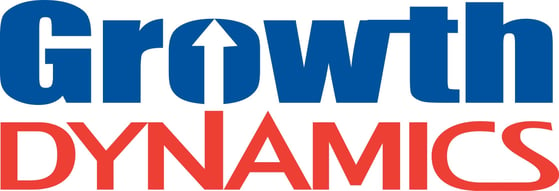You know who I am — Charlie Hauck, Founder, President, and Lead Trainer at Growth Dynamics.
Hey, I’ve got another business topic for this Friday, because we tend to think in immediacy. We like immediate return. We can’t wait to see the fruits of our labor. But you’ve got to understand business cycles. You live in a business cycle.
If you're in business development, it's not just: They bought something, they gave me a PO today, I ship them product next Tuesday, and I get paid for that sale next Friday.
Typically, that’s not how business-to-business selling works.
You've got to understand that your business cycle really starts from your first contact with an opportunity:
Can we have a business conversation? Can we figure out if this can be a mutually beneficial opportunity for us both?
I sell you a product or service, and you're willing to pay me my price at a fair margin. That's what we have to do in business development.
But we’ve got to understand — from Day 1 of the sales cycle to the day that you actually see compensation in your paycheck — if you're in a results-oriented compensation plan, it could take 90 days.
For some of the people I work with: if you're a manufacturer’s rep and you sell something on May 22nd, it might not get delivered until June 5th.
It might not get invoiced by the manufacturer until June 30th.
It might not get paid to your rep agency until July 15th.
Which means it might not get to your paycheck until August 1st.
That's about a 10-week sales cycle right there.
So when we look at statistics — we look at closing cycles, revenue generated, purchase orders signed, and commissions owed — we've got to understand the timeline.
What is the velocity of the revenue you're generating?
How quickly can you turn that:
"I don't know if this works for you, but can we have a business conversation?"
into:
"Honey, let’s go out to a really nice dinner — I got a great commission check."
You have to be completely aware of all the cycles of the business world you're working in.
If you're selling large capital expense equipment, it could take you a year. That's a scary number.
But once you get into that business cycle consistently — and you're closing a capital expenditure item every month or every six weeks — you’re getting paid at a high level every month or every six weeks.
The business cycle is what the business cycle is. You have to know it to understand how it affects your financial life and your personal enjoyment of that life.
I love long cycles — but you've got to have enough of them consistently to stop riding through the peaks and valleys that so many people are accustomed to.
Know your business cycle.
Today's effort might not impact your paycheck for a long time.
So every day, you've got to put in the effort to start a new opportunity, so you don't have a lull in your revenue stream. It’s predictable. It’s somewhat controllable.
If you do enough prospecting…
If you can find a creative way to express your value and competitive difference…
You can live with that business cycle. But don't be upset, and don’t be surprised, if you don’t pay attention to it — and then suddenly feel like:
“Holy cow, my money machine isn’t working.”
It’s because your business cycle hasn’t been paid attention to.
The best business development people I’ve met — and the best I’ve had the honor to train — are the ones who understand business as much as they understand the product or service they’re selling.
Those are the real killers in the world — the ones I want to work with.
So get on the bandwagon of business cycle awareness.
Understand: once you can get that cycle operating, you can have a regular income at almost any level you'd like.
But it's up to you to understand how to make it happen — and to do the work consistently to keep it happening.
Know your business.
Know your cycle.
Make your money.
Have a great weekend.
Get out there on Monday and turn the cycle machine on again — so you know when your next big check is coming.
Take care.




-Jun-05-2025-06-04-40-8256-PM.jpg)


